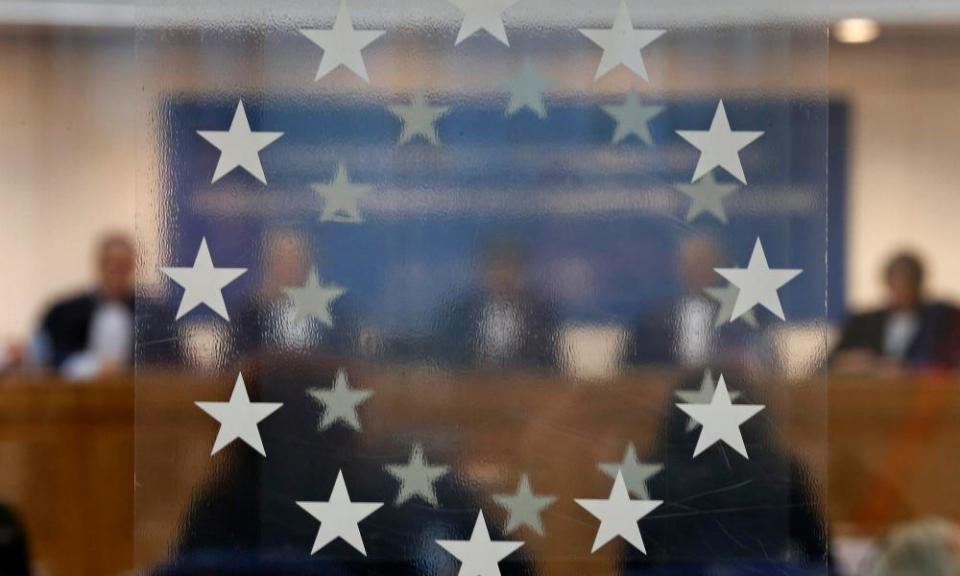Brussels seeks to tie UK to European human rights court after Brexit

Brussels is seeking to bind the UK to the European court of human rights after Brexit in a move likely to infuriate those in the Conservative party championing a break with the Strasbourg court.
A document outlining the European commission’s position on future judicial and police cooperation stipulates there will be a “guillotine clause” on any security deal should the UK leave the remit of the court.
The court, which is entirely separate to the EU’s institutions, was established after the second world war as an arbiter of disputes over the European convention of human rights, to which 47 states are signatories.
However, it has long been the aim of some Tories for the UK to leave the convention, which they say restricts parliamentary sovereignty.
A year before the Brexit referendum in 2016, Theresa May had argued that the UK should “should leave ... regardless of the referendum result”, arguing that it “can bind the hands of parliament, adds nothing to our prosperity, makes us less secure by preventing the deportation of dangerous foreign nationals”.
May, who battled with the court over her plans to deport the radical Muslim cleric Abu Qatada from the UK, was reportedly aiming to put withdrawal from the convention in a 2020 Tory general election manifesto before events intervened.
In the end, the last Conservative manifesto ruled out repealing or replacing the Human Rights Act, which incorporates the convention in UK law “while the process of Brexit is under way”. But it said consideration would be given to the UK’s “human rights legal framework” when Brexit had been concluded.
The commission document insists, however, that the UK remaining “a party to the European convention on human rights” is regarded as a key safeguard for the EU.
The paper, presented to member states last Friday, says that in terms of a judicial and police cooperation, including information exchanges, there will need to be a ‘guillotine clause’, if the UK leaves the convention or is condemned by the European court of human rights (ECHR) for non-execution of an ECHR judgment in the area concerned”.
The EU paper also rules out demands made by the prime minister for a bespoke partnership in the field of internal security.
The UK was seeking to at least attain the same level of access to the Europol Information System as Denmark, for example. The Danes opted out of Europol membership, and have come to an arrangement under which their authorities are able to ask for data, rather than have direct access.
With regard to exchanges of information, the document merely offers: “Streamlined information exchange between law enforcement authorities ... Effective exchanges of data with Europol (no access to Europol Information System; The Danish arrangement is not a precedent for the relations with the UK, as Denmark is an EU MS, Schengen member, accepts full ECJ jurisdiction and the EU data protection legislation).”
The EU has warned that it is not willing to open up its security framework to a “third country”, in a way that will limit its control over data and weaken its autonomy.

 Yahoo News
Yahoo News 